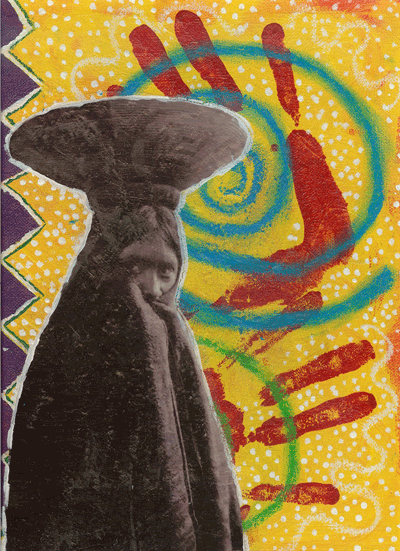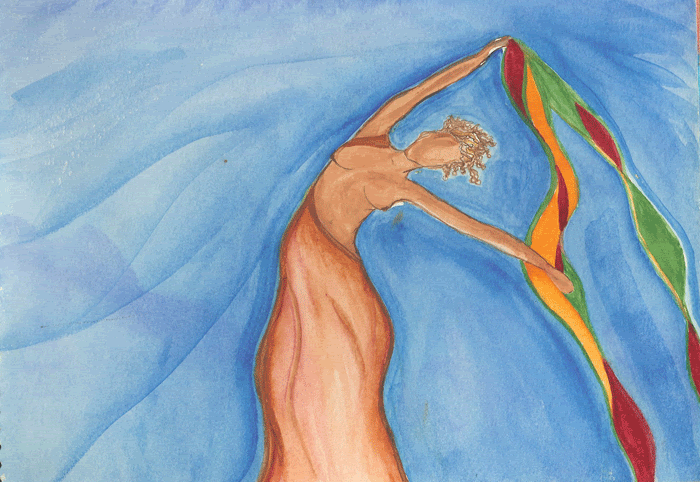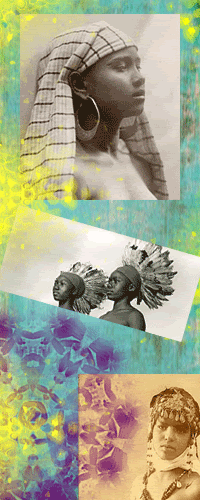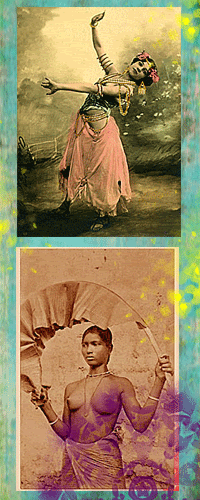
A friend sent this news article to me. Everywhere you look the womb of the Afrikan woman is being violated. Whether it is on the Continent or in the Diaspora. Whether it is between two nations or a husband and a wife. Please read the following article.
Peace,
Sistah C
PS. Trying to work out this art journal video...sorry for the delay. I may just end up using photos.
Gang rape spirals in violent Kenya
By Stephanie Holmes
BBC News
Rape is on the rise in Kenya, troubled by violence which followed December's disputed elections.
Every day women turn up at the doors of Nairobi's hospitals and clinics telling the same story.
"I could not run away. They gagged my mouth and pinned me down," one woman remembers.
"After raping me they blindfolded me and led me to a nearby forest. That's where they left me."
Her experience - doctors, officials and the UN say - is echoed by hundreds of other women who have survived a spiralling number of sexual attacks.
Many are gang rapes, carried out by groups of armed men.
Staff in the Nairobi Women's Hospital - one of Kenya's leading centres for the treatment of rape and sexual violence - say they have seen double the number of cases affecting women, teenagers and girls since January.
"Since the beginning of the month, we have had 140 cases of rape and defilement," said Rahab Ngugi, patient services manager at the hospital.
"We were used to seeing an average of about four cases a day, now there is an average of between eight and 10."
Almost half of the cases at the hospital's specialised clinic are girls under the age of 18, Ms Ngugi said. One case was a two-year-old baby girl.
She knows that such a dramatic rise in numbers presenting at the clinic indicates that the reality beyond is far worse.
Tip of iceberg
Only a small percentage of women actually come to receive medical treatment and counselling in the immediate aftermath of a sexual attack, she said. It means they do not get access to the drugs which might prevent the onset of HIV.
Battles are fought on women's bodies as much as on battlefields
Kathleen Cravero, UNDP
"It is the tip of the iceberg," Ms Ngugi said. "At any time of unrest, of violence, or rioting, women and children are targeted. It is revenge, it is war. People are fighting and the weakest ones get abused."
Clashes broke out across Kenya in late December after President Mwai Kibaki declared himself the winner of an election disputed by the opposition and labelled as flawed by the international community.
An estimated quarter of a million people have fled their homes to escape the unrest and some 85% of these are women and children.
Women's position of relative weakness in society is emphasised in times of conflict, Kathleen Cravero, Director of the UNDP's Bureau for Crisis Prevention and Recovery said.
"Battles are fought on women's bodies as much as on battlefields. It is not so much that women are targeted in some deliberate way but their vulnerability makes them easy targets for anger, for frustration, and for people wanting to cripple or paralyse other segments of the community in which they live."
She says there is no evidence as yet that Kenya's high levels of sexual violence are ethnically motivated rather than opportunistic and criminal.
But the doubling of rape cases, she says, is "a very, very strong indicator of a serious problem" adding that the actual numbers are without doubt far higher.
Impunity
Women often have other concerns that prevent them seeking help after an attack, said Hadley Muchela, a Nairobi-based rape counsellor with NGO Liverpool VCT.
"If there is a woman who probably saw her relatives killed, she might push her own issues of violence to the periphery.
"There will be worries about property and the death of children. Their immediate needs are temporary shelter, safety and food."
He worries that although the gangs are not yet targeting makeshift, unregulated camps and shelters - in schools, churches and community centres - the women and their children sheltering there are increasingly vulnerable.
The UN says that in the capital alone some 12,000 people are living in public buildings after being driven from their homes.
Ms Cravero agrees that these shelters should be the focus of concern.
"Many of the internally displaced are not living in formal camps. They are just gathered around a school or church. Then you have the worst-case scenario - where you don't have that level of law and order and you have people living on top of each other."
The only way to prevent the almost inevitable spike in violence towards women in times of crisis, she said, is for governments to tackle the sense of impunity.
"Before violence breaks out, and during, and after, [governments must] really push the question of impunity, make sure that people know that rape visited upon innocent women and children will be treated for what it is - a crime."
Story from BBC NEWS:
http://news.bbc.co.uk/go/pr/fr/-/2/hi/africa/7204680.stm
Published: 2008/01/23 16:26:26 GMT
© BBC MMVIII



















0 comments:
Post a Comment